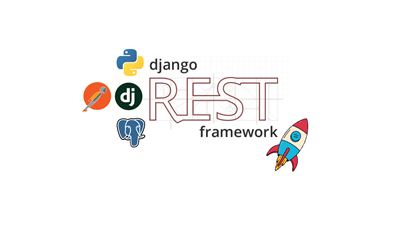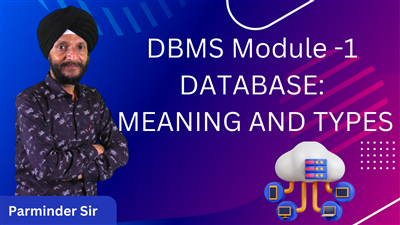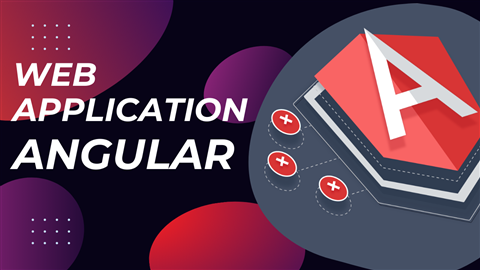
Your Path to Mastering Structured Query Language
Welcome to our SQL course! Whether you're looking to enhance your career, delve into data analytics, or develop robust database-driven applications, this course is designed to equip you with the essential skills and knowledge needed to master Structured Query Language (SQL). SQL is the universal language used to manage and interact with relational databases, making it a critical skill for a wide range of professions. In this course, we will guide you through SQL fundamentals to advanced techniques in a clear, step-by-step manner.
Course Overview
Our SQL course is structured to take you from a complete beginner to a proficient SQL user. We will cover everything from the basic syntax to complex queries, ensuring you gain a comprehensive understanding of how to effectively use SQL in real-world scenarios. The course is designed to be practical and engaging, with hands-on exercises and real-world examples that help solidify your learning.
What You Will Learn
Introduction to SQL and Databases
- Understand what SQL is and why it is essential for managing relational databases.
- Database Fundamentals: Learn about relational databases, tables, rows, and columns.
- SQL Syntax: Get familiar with the basic SQL syntax and structure of SQL commands.
- Basic
SQL Operations
- SELECT Statement: Learn how to retrieve data from a database using the SELECT statement. Understand how to filter, sort, and limit your results.
- WHERE Clause: Discover how to use the WHERE clause to specify conditions and filter records.
- ORDER BY: Learn how to sort your query results in ascending or descending order.
- LIMIT and OFFSET: Control the number of rows returned and the starting point of the results.
2. Data Manipulation
- INSERT INTO: Understand how to add new records to a table with the INSERT INTO command.
- UPDATE SET: Modify existing data in a table using the UPDATE SET statement.
- DELETE FROM: Remove records from a table with the DELETE FROM command.
3. Data Definition Language (DDL)
- CREATE TABLE: Learn how to create new tables in a database and define their structure.
- ALTER TABLE: Discover how to modify existing table structures, such as adding or removing columns.
- DROP TABLE: Understand how to delete entire tables from the database.
- Advanced Query Techniques
- JOIN Operations: Master how to combine data from multiple tables using different types of JOINs (INNER JOIN, LEFT JOIN, RIGHT JOIN, FULL JOIN).
- Subqueries: Learn how to write subqueries to perform complex operations and nested queries.
- GROUP BY and HAVING: Understand how to group data and filter groups using the GROUP BY and HAVING clauses.
- Aggregate Functions: Use functions like COUNT, SUM, AVG, MIN, and MAX to perform calculations on your data.
Indexing and Performance Optimization
- Indexes: Learn about indexes and how they can improve query performance.
- Query Optimization: Discover best practices for writing efficient queries and optimizing database performance . Working with Views and Transactions
- Views: Understand how to create and use views to simplify complex queries and manage data more effectively.
- Transactions: Learn about transactions, including BEGIN TRANSACTION, COMMIT, and ROLLBACK, to ensure data integrity and handle errors.
SQL Best Practices
- Naming Conventions: Learn best practices for naming tables, columns, and other database objects to maintain clarity and consistency.
- Data Security: Discover techniques for securing your database and protecting sensitive information.
Course Features
- Interactive Lessons: Each module includes interactive lessons with clear explanations and examples to help you grasp SQL concepts easily.
- Hands-On Exercises: Practice what you’ve learned with hands-on exercises and real-world scenarios that reinforce your skills.
- Quizzes and Assessments: Test your knowledge with quizzes and assessments to track your progress and understanding.
- Practical Projects: Apply your skills to practical projects that simulate real-life database tasks and challenges.
- Support and Resources: Access a wealth of resources, including reference materials, tutorials, and support from experienced instructors.
Who Should Take This Course?
- Beginners: Those who have little to no experience with SQL and want to build a strong foundation.
- Data Analysts: Professionals who need to query and data as part of their job.
- Software Developers: Developers who want to enhance their skills in database management and integration.
- Career Changers: Individuals looking to enter the field of data management or database administration.
Conclusion
Our SQL course offers a comprehensive and user-friendly approach to learning Structured Query Language. By the end of the course, you will have a solid understanding of SQL basics, advanced techniques, and best practices. You’ll be equipped to efficiently manage databases, perform complex queries, and optimize database performance. Whether you are looking to enhance your career or gain valuable skills for personal projects, this course provides the knowledge and practical experience needed to succeed in the world of SQL.






